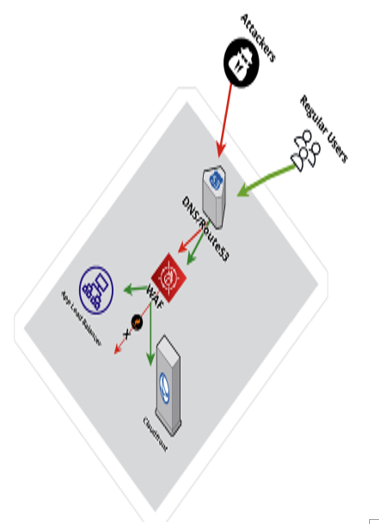Firewalls and network security – Security and Compliance 1 – Cloud Perspective
Cloud Exams, Exams of Cloud, Service providersFirewalls and network security
Firewalls and network security play a pivotal role in safeguarding cloud environments by controlling and monitoring traffic entering and exiting the cloud infrastructure. These security measures are vital in preventing unauthorized access, mitigating cyber threats, and ensuring the confidentiality and integrity of data and resources. Let’s delve into the details of firewalls and network security in the cloud, along with some of the tools and services available for robust network protection.
Firewalls in cloud environments:
- Network firewalls: Network firewalls act as a barrier between a trusted internal network (such as a VPC in AWS or a VNet in Azure) and untrusted external networks (such as the internet). They inspect network traffic and enforce security rules, allowing only authorized traffic to pass through while blocking or logging suspicious or malicious activities.
- WAFs: A WAF filters, monitors, and blocks HTTP/HTTPS requests between a web application and the internet. WAFs protect web applications from common web-based attacks such as SQL injection, XSS, and other OWASP Top 10 threats.
Figure 6.5 depicts how a WAF would function and be placed in a typical cloud environment:

Figure 6.5 – WAF in a cloud environment
Network security tools and services:
- AWS Network Firewall: AWS Network Firewall is a managed firewall service that provides granular control over inbound and outbound network traffic at the protocol and port level. It integrates with AWS Security Groups and AWS Shield for comprehensive network security.
- Azure Network Security Groups (NSGs): Azure NSGs are cloud-based firewalls that allow or deny traffic based on source and destination IP addresses, ports, and protocols. They provide network segmentation and isolation in Azure Virtual Networks (VNets).
- Google Cloud Firewall Rules: Google Cloud Firewall Rules enable you to control traffic at the instance level within GCP. They work similarly to traditional firewalls, filtering traffic based on IP addresses, protocols, and ports.
- Cloud-based WAFs: Cloud providers such as AWS, Azure, and GCP offer cloud-native WAF solutions that protect web applications from common web-based attacks. Third-party WAF services, such as Cloudflare and Imperva, can also be integrated with cloud environments.
- Open source firewalls: Tools such as iptables, nftables, and pfSense offer open source firewall solutions that can be deployed in cloud instances or virtual machines for more customized network security configurations.
- Cloud-based DDoS protection: Cloud providers such as AWS and Azure offer DDoS protection services that help defend against large-scale DDoS attacks, ensuring service availability.
The following are the benefits of firewalls and network security:
- Access control: Firewalls enable organizations to implement access control policies, allowing only authorized traffic to pass through and protecting against unauthorized access attempts
- Threat mitigation: Firewalls act as the first line of defense against cyber threats, preventing malicious traffic from reaching the cloud infrastructure and applications
- Network segmentation: Network firewalls and NSGs enable network segmentation, isolating different parts of the infrastructure and reducing the impact of potential breaches
- Compliance and regulatory requirements: Firewalls help organizations meet compliance and regulatory requirements by enforcing security policies and protecting sensitive data
- Visibility and logging: Firewalls provide logging and monitoring capabilities, allowing organizations to analyze network traffic and identify potential security incidents
Firewalls and network security are crucial components of cloud security, providing a secure perimeter and protecting cloud resources from external threats. Cloud providers offer native firewall services, and third-party tools complement these offerings, allowing organizations to tailor their network security measures to meet specific needs. By effectively implementing firewalls and network security measures, organizations can significantly enhance the overall security posture of their cloud environments, ensuring the confidentiality, integrity, and availability of their critical assets and data.
